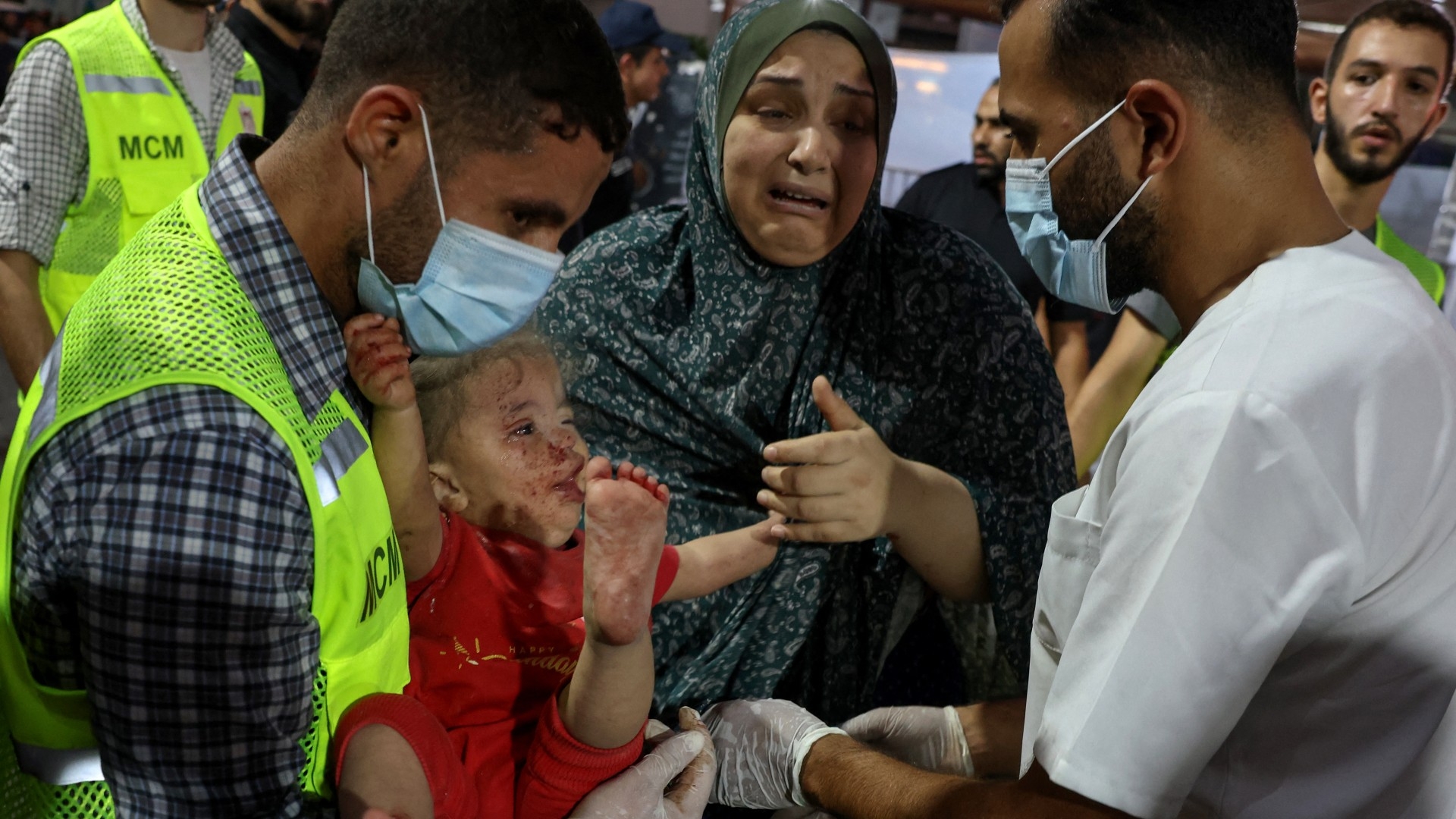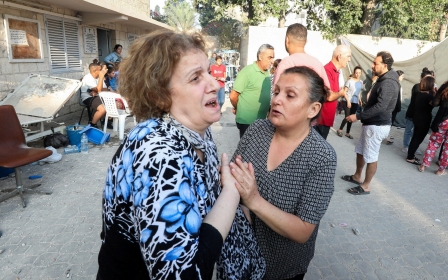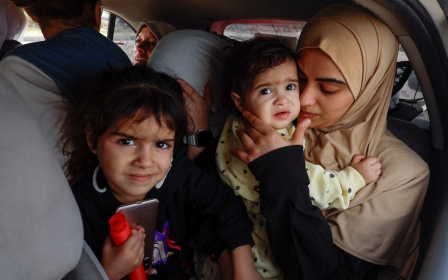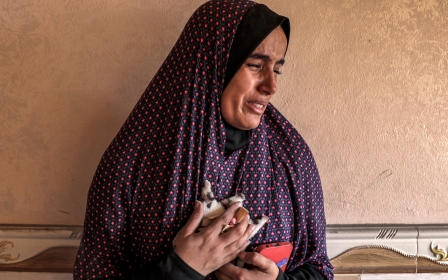Israel-Palestine war: Ex-Israeli prime minister suggests Gaza's Shifa hospital a target

Former Israeli Prime Minister Ehud Barak has suggested that Israel could target the Shifa hospital in Gaza City, days after a devastating air strike on the al-Ahli Arab hospital killed hundreds of Palestinians.
In an interview broadcast on the BBC on Thursday, Barak also said that Israel would not listen to voices calling for a ceasefire despite the death toll exceeding more than 4,200 in the besieged Gaza Strip.
When asked by a BBC Newsnight reporter whether Israel vetted the targets it chooses after civilian apartment blocks, schools, houses of worship and hospitals were all struck by Israeli air strikes, Barak said: "The central command post of Hamas is... in a bunker underneath the Shifa hospital.
"First of all, it's a matter of fact, it's known to everyone who knows the Middle East - every reporter that lives in Gaza or in Israel - knows that the command post of Hamas in Gaza is underneath."
When challenged on the claim, and told that no one besides the Israeli army was aware of such information and that a strike on the Shifa hospital could lead to a catastrophic number of deaths, Barak doubled down.
New MEE newsletter: Jerusalem Dispatch
Sign up to get the latest insights and analysis on Israel-Palestine, alongside Turkey Unpacked and other MEE newsletters
"It's deliberate, it [Hamas]... doesn't care about it's own citizens. We are facing a tough and shrewd rival but we are determined to destroy it and we will," he said.
When asked further whether Israel would attack the Shifa hospital, Barak said: "I can promise you, that we will never attack the hospital [when] it is full with patients, in spite of knowing that it's deliberately underneath the hospital.
"I cannot promise you for sure that at a certain point we won't impose taking the patients out and passing them to another installation where they can be treated safely and then destroy the command post of Hamas."
Barak's comments come two days after an Israeli air strike on the al-Ahli Arab hospital in Gaza killed at least 471 Palestinians.
Israel has denied responsibility despite bombing the same site days earlier and warning hospital administrators that they needed to evacuate the facility.
Follow Middle East Eye's live coverage for the latest on the Israel-Palestine war
Officials in Israel have instead blamed a failed rocket launch by the Palestinian Islamic Jihad (PIJ) group. The PIJ and Hamas, which governs Gaza, have both denied the Israeli claim.
At the time of the devastating strike, the Anglican-run hospital was providing treatment and shelter to hundreds of Palestinians wounded and displaced by Israel's war on the besieged enclave.
The Palestinian health ministry told Middle East Eye that the Israeli army told all hospitals in northern Gaza and the centrally located Gaza City, as well as two hospitals in the south, to clear out last week. At least 22 hospitals, including Shifa, have received such warnings. The ministry rejected the threats and refused to leave vulnerable patients.
The "Israel" X account tweeted on Tuesday night what it said was evidence of PIJ culpability in the attack, saying that "from the analysis of the operational systems of the IDF [Israeli army], an enemy rocket barrage was carried out towards Israel, which passed through the vicinity of the hospital when it was hit".
However, the original version of the post included a video of rockets fired from the vicinity of Gaza City.
The video was later deleted by the account, while analysts noted that the first public mentions of the bombing were at 7.20pm local time, whereas the video shared by Israel as evidence was time-stamped at between 7.59 and 8pm local time.
Israel has previously blamed Palestinians for atrocities it later accepted it was responsible for, such as the killing of Al Jazeera journalist Shireen Abu Akleh in May 2022 by an unnamed Israeli sniper in Jenin.
This article is available in French on Middle East Eye French edition.
Middle East Eye delivers independent and unrivalled coverage and analysis of the Middle East, North Africa and beyond. To learn more about republishing this content and the associated fees, please fill out this form. More about MEE can be found here.





